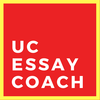If you’re hoping to attend Harvard next year at this time, there are a few things you should know before pressing send on your application. They are as follows: Harvard University is located in Cambridge, Massachusetts.
|
HoursM-F: 7am - 9pm
|
Telephone+1 613 981 1809
|
|





 RSS Feed
RSS Feed